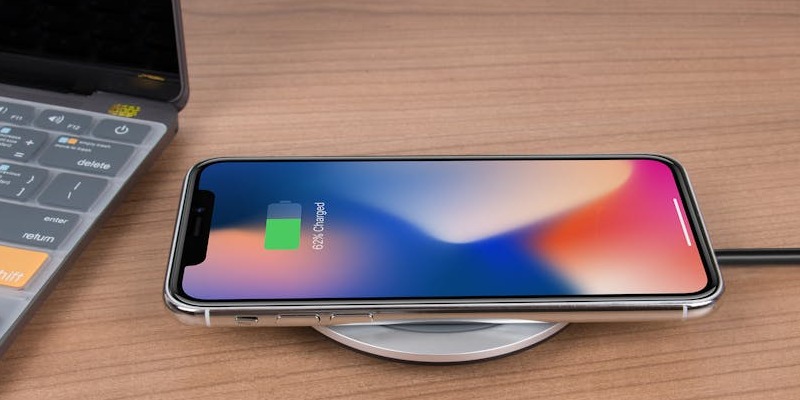Battery life remains one of the most crucial factors users consider when choosing a smartphone, and this is especially true for heavy users who rely on their devices throughout the day for various tasks. Apple’s latest release, the iPhone 16, has faced scrutiny as many users report significant battery drain issues that were not present in previous models. This has led to widespread discussion on platforms such as Reddit, Apple’s support pages, and the MacRumors forum, where users have been sharing their experiences and seeking solutions.
Problematic Battery Performance
Background Activities Draining Battery Life
Reports indicate that the battery problems often occur while the phone is in standby mode, which suggests that background activities may be responsible for the unexpected drain. Usually, when a device is in standby, its battery consumption should be minimal; therefore, these reports are particularly concerning. Measuring battery usage in such scenarios is inherently challenging because different applications can consume power at varying rates, making it hard to pinpoint the exact cause without thorough analysis.
For instance, users have noted that certain apps, particularly those that run in the background or utilize location services, can contribute to the problem. Additionally, some have discovered that turning off background app refresh and disabling unnecessary location services temporarily alleviates the issue, although it does not entirely solve it. The inconsistency in user reports suggests that multiple factors might be at play, further complicating the task of diagnosing and fixing the battery drain.
Comparing iPhone 16 and iPhone 15
Despite these issues, it’s important to note that the iPhone 16 does come with a more powerful battery compared to its predecessor. The device features a 3,561mAh battery, which is a 6.3% increase over the iPhone 15’s battery capacity. In controlled tests, the iPhone 16 lasted 17 hours and 47 minutes, which significantly surpasses the iPhone 15’s 16-hour mark. This improvement indicates that the hardware itself is capable of delivering longer battery life under ideal conditions.
However, user experiences tell a different story, suggesting that software-related issues are undermining the potential benefits of the enhanced hardware. The discrepancy between test results and real-world usage highlights the complexity of battery management in modern smartphones, where various components, including the operating system, play a crucial role.
Software Updates and User Experiences
iOS 18 Complications
Another layer to this issue is the introduction of iOS 18. Users of older iPhones have also reported similar battery drain issues after updating to the new operating system. Some users have indicated that these problems were mitigated upon upgrading to iOS 18.0.1 or by installing the iOS 18.1 beta. This points to the possibility that the forthcoming iOS 18.1 update, scheduled for release on October 28, could offer a more permanent fix for the battery issue.
In addition to battery fixes, iOS 18.0.1 has addressed various other bugs, such as touch-screen anomalies, crashes in the Messages and Camera apps, and memory allocation errors. These updates indicate that Apple is aware of the problems and is working proactively to resolve them. However, the lack of an official statement from Apple regarding the battery issues has left many users feeling uncertain about the effectiveness of these incremental updates.
Incremental Fixes and User Expectations
The broader consensus among users and reviewers is that while the iPhone 16 offers tangible improvements in battery life compared to its predecessor, the ongoing software-related issues are a significant drawback. Apple’s history of releasing subsequent patches and updates provides some hope that a resolution is likely forthcoming. These incremental updates are seen as part of a broader strategy to stabilize the operating system and enhance user satisfaction.
For now, users are advised to keep their devices updated with the latest software patches and to monitor performance to see if the forthcoming iOS 18.1 update delivers a more comprehensive solution. The detailed user reports, combined with the incremental updates, signify a collective effort to rectify the issue and improve the overall user experience. While the iPhone 16’s enhanced battery capacity is a step forward, the immediate challenge lies in overcoming the software glitches that have prompted these battery life concerns.
Conclusion
Battery life remains a top priority for users when choosing a smartphone, especially for those who depend heavily on their devices for various daily tasks. Apple’s latest iPhone 16 has come under fire as users report experiencing significant battery drain issues that were not present in earlier models. This has sparked widespread discussion on platforms like Reddit, Apple’s support pages, and the MacRumors forum. Users have been voicing their frustrations and seeking advice on how to manage or fix these issues. Discussions range from detailed usage patterns to software updates and potential hardware defects. Many users argue that battery life should not be compromised with newer models, especially when the technology is supposed to advance with each release.
In response to these concerns, some tech experts are suggesting potential solutions like adjusting settings, disabling certain features, or even performing a factory reset. However, for many, these are temporary fixes that do not address the root cause. Apple has yet to make an official statement that offers a permanent solution, leaving many loyal customers feeling disappointed. The conversation continues as users eagerly await a patch or update to resolve these battery issues in the iPhone 16.

